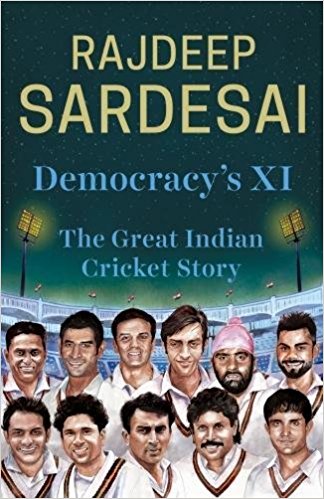In the preface to his classic book on cricket Beyond A Boundary (1963) CLR James wrote: ‘What do they know of cricket who only cricket know.’ Living up to this challenge James wrote a book on West Indian cricket which explored cricket’s association with race, class and politics, briefly sketched the careers of canonic cricketers like W G Grace, Learie Constantine and George Hadley apart from some lesser known greats, and treated cricket as an art form, establishing its relationship with the theatre, ballet, opera and dance.
Rajdeep Sardesai is certainly a man who does not only cricket know. Synonmous with TV journalism since almost its beginning in India, Sardesai brings all his political and sociological insights to unravel the cricketing lives of 11 of the best cricketers who have played for India with distinction. His choice of the 11 men, and he is conscious of the fact that they are all men, is a personal choice. He has not made an all time great Indian eleven but chosen 11 individuals ‘who I believe in their own way shaped Indian cricket and made it the country’s number one sport’ (p. 14). Sardesai’s thesis in the book is simple: Cricket sums up in the best possible manner the democratic, pluralistic, multi-religious ethos of India.
Somewhere in his narrative there is also a disappointment with the political class and an escape in the game of cricket where all those democratic principles (appear to) shine brightly. No wonder he starts fantasizing about iconic Indian cricketers like Saurav Ganguly donning the political gloves because Sardesai wishes that his cricketing heroes could deliver in other fields as well.

